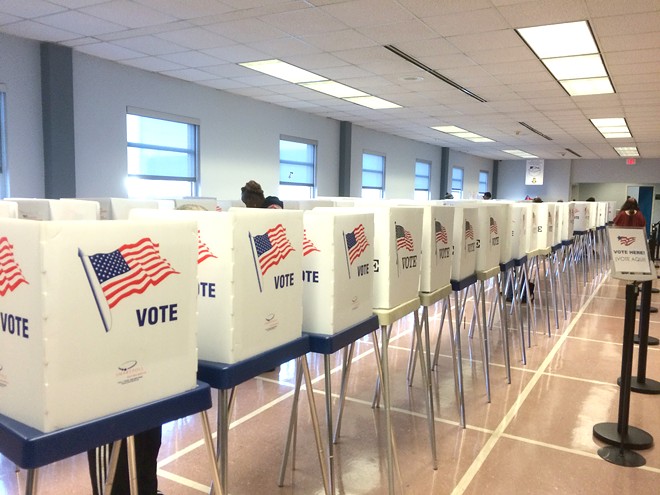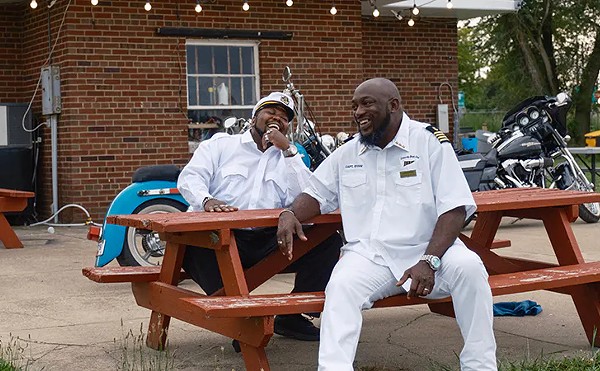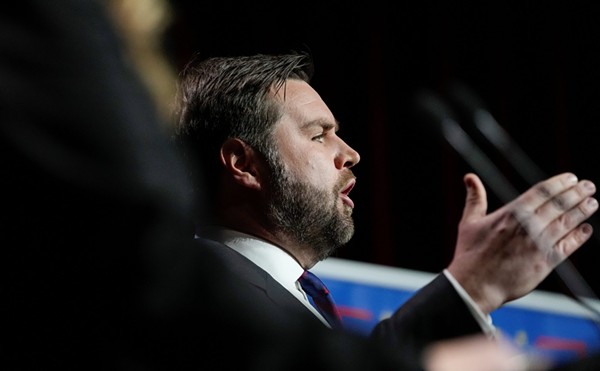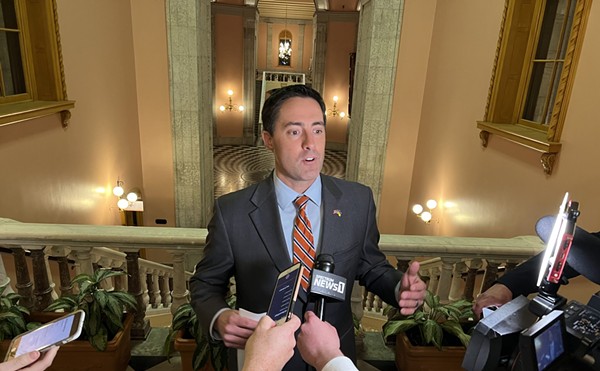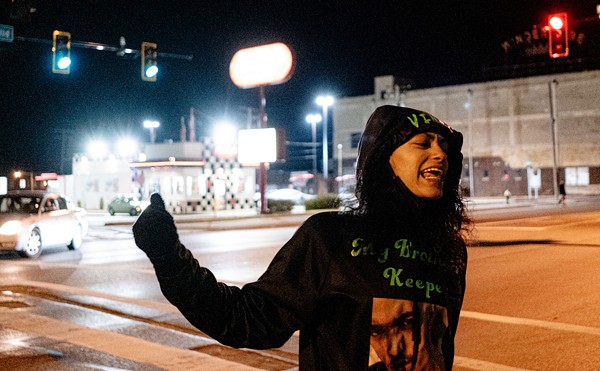With Ohio searching for more poll workers during the pandemic last year, Secretary of State Frank LaRose had to get creative.
Ohioans needed their hair cut after being indoors for months. And, perhaps just as much, they wanted to go out again for drinks. So LaRose announced two new programs meant to spur voter registration and poll worker recruitment.
“Styling for Democracy” brought registration forms to Ohio barber shops, while a number of craft breweries joined the “Raise a Glass for Democracy” campaign. Rhinegeist Brewery offered up bottles of Every Vote Counts IPA with labels that read, “A collaboration brewed to encourage voter registration in Ohio.”
These efforts, LaRose later said, were successful in driving recruitment and educating voters.
It appears they will also be illegal going forward, thanks to a state budget provision inserted and supported by Republican lawmakers.
Here is the provision text: “No public official that is responsible for administering or conducting an election in this state shall collaborate with, or accept or expend any money from, a nongovernmental person or entity for any costs or activities related to voter registration, voter education, voter identification, get-out-the-vote, absent voting, election official recruitment or training, or any other election-related purpose…”
There are a few exceptions, such as using a nongovernmental building (like a church) as a polling place and allowing food donations for poll workers on Election Day.
Besides that, the language seems clear: LaRose would not be able to collaborate with private businesses or with voting rights advocates on any get-out-the-vote programs because they are not part of the government.
LaRose, however, sees the budget provision differently. He feels the language does not apply to programs like his “Styling for Democracy” initiative.
“That’s not my interpretation of the law, certainly,” LaRose said.
He also described having recent conversations with legislative leaders and said they told him outlawing such programs “was not their intent.”
“Those are great initiatives,” he continued, “and we’re going to continue doing those because one of my most important responsibilities is making sure that Ohioans can access the opportunity to get registered and to cast a ballot.”
What happens if the law does end up prohibiting such work?
“And if somebody wants to challenge my ability to do that, well then I guess we’ll see them in court,” LaRose said.
🍻”Beer is proof that God loves us and wants us to be happy.”🍻
— Frank LaRose (@FrankLaRose) July 20, 2020
Some dispute it, but this bit of wisdom is often credited to Ben Franklin.
Either way — our Raise a Glass to Democracy initiative is proof that we love voters and it’s easy to become one at https://t.co/TI8p9denz4! pic.twitter.com/OUmdmX8BnW
Facebook CEO donated to Ohio election causes
The 2020 election cycle was particularly complicated, with many Ohio voters opting to cast absentee ballots for the first time due to the pandemic. LaRose’s office and other advocates spent much of the year educating citizens on their voting options and various deadlines.
Nonprofit groups and corporations like Facebook tried to help. CEO Mark Zuckerberg and his wife, Priscilla Chan, donated $300 million toward election causes such as poll worker recruitment and buying safe elections equipment.
Millions of dollars were distributed through the nonprofit group Center for Election Innovation & Research, which then divvied up the money to secretaries of state across the country, Vox reported.
Last September, state lawmakers on the Ohio Controlling Board approved LaRose’s request to accept more than $1 million from the Center for Election Innovation & Research. LaRose said the money would be distributed to county boards of elections to assist with poll worker training, voter advertisements and equipment.
Some of this spending was controversial. Despite support from the Ohio Association of Elections Officials, the Republican members of the Summit County Board of Elections expressed concerns about taking in money from a private organization, cleveland.com reported at the time.
‘Anti-democratic provision’
Democratic lawmakers and groups making up the Ohio Voter Rights Coalition urged Gov. Mike DeWine to veto the budget item.
“The state operating budget is not a vehicle for lawmakers to sneak in anti-democratic provisions that threaten the constitutionally-protected right to free and fair elections,” said Catherine Turcer, executive director of the good government group Common Cause Ohio, in a provided statement.
But the Republican governor signed the budget with this item still in place.
Now Democrats plan to try and repeal the provision ahead of the 2022 election cycle, with Rep. Bride Rose Sweeney, D-Cleveland, announcing she was seeking cosponsors. Lawmakers are on summer break and return to regular sessions in the fall.
Today I sent a request for co-sponsors to repeal a new law banning churches, businesses and sports teams from working with BoEs on voter registration and education. This overly broad and harmful law was added late in the budget process without public vetting and must be revisited pic.twitter.com/QRG5agIrmJ
— Bride Rose Sweeney (@RepBrideSweeney) July 12, 2021
LaRose continues to promote his work and says he has no plans to stop, even with the provision in place.
“I am very proud of the work that we’ve done, just like any secretary of state should do, to get people registered to vote, to encourage participation,” he said.
Originally published by the Ohio Capital Journal. Republished here with permission.

